The visibility of tattoos is increasing across the country and in all industries, including the social work field. This has left many aspiring social workers – as well as those currently working in the profession – wondering if it’s ok for them to get inked. For a professional like a social worker, who works with children, elderly, and various communities on a daily basis there can be additional complications when considering whether or not to have tattoos visible while at work. So what do you need to know about getting a tattoo if you want to become a Social Worker? In this blog post we’ll explore the different considerations that come up when discussing whether or not Social Workers can have tattoos such as cultural implications, current policy guidelines from national organizations, potential dress code policies by employers and more!
Can Social Workers Have Tattoos?
This is a question that has been asked by many people who are considering entering the social work profession. The answer to this question is yes, provided that certain guidelines are followed.
It’s important to note that most employers in the field of social work may have specific policies regarding visible tattoos on their employees. Therefore, it’s important to research potential employers and ensure you understand any rules or regulations they may have in place.
When it comes to tattoos, there are several important considerations a social worker should take into account prior to getting one:
- Consider the message your tattoo will send: Tattoos can say a lot about a person’s personality and values. It’s important for anyone entering the social work profession to be aware of the message their tattoos may send, as many social workers need to have a professional public image.
- Think about where you plan to place your tattoo: Social workers must take into account how visible their tattoos will be when deciding where to place them. For instance, if you choose to get a tattoo on your arm or neck, it’s likely that it will be visible whenever you wear short-sleeved shirts or dresses.
- Get advice from experienced professionals: It can also be beneficial for social workers to seek advice from more experienced professionals before getting a tattoo. Experienced social workers can offer valuable insight into how clients and employers might view tattoos and what regulations might apply in certain situations.
In summary, while there are no universal rules regarding social workers and tattoos, it’s important to consider the message your tattoo might send, its visibility, and to get advice from experienced professionals before getting one. When done thoughtfully and with proper consideration of potential consequences, a tattoo can be an appropriate choice for a future social worker. [1]
Is There A Place For Tattoos In Social Work?
Tattoos have grown in popularity over the past decade and can be seen everywhere, from celebrities to people walking down the street. But what does this mean for those who work in professions such as social work? Can a social worker have tattoos or are there certain rules restricting them?
The answer is generally yes; tattoos are not officially banned within many professional settings including those related to social work. However, it may depend on the context of where you’re employed and new regulations can change over time. Ultimately, it’s important to consider if your tattoo(s) will impair your ability to do your job effectively and if they could be potentially offensive or distracting to others.
That said, there is no one-size-fits-all answer when it comes to having tattoos as a social worker. Ultimately, it’s important to think carefully about whether having visible tattoos will put you in an uncomfortable situation or negatively affect your professional reputation. It may also be beneficial to speak with your employer directly if there are any questions regarding regulations or expectations surrounding body art.
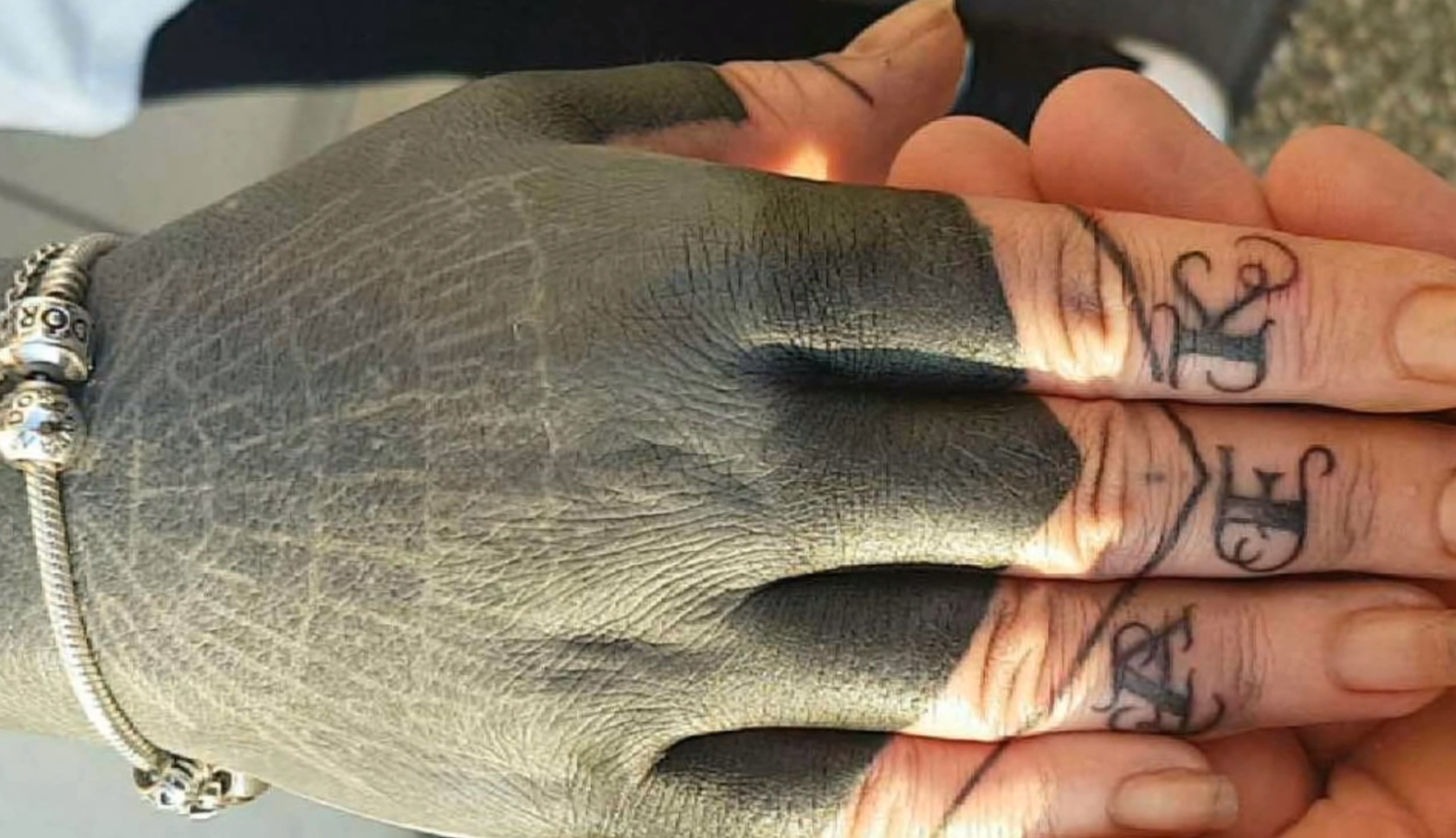
What Jobs Don’t Allow Visible Tattoos?
Unfortunately, not all jobs are open to employees with visible tattoos. Certain professions and companies have strict dress codes that do not permit visible tattoos. For example, police officers often cannot have any visible tattoos since it can interfere with their job duties. Similarly, teachers and other educators may be prohibited from having any visible tattoos at school-related events or while on school grounds.
Furthermore, some corporations also prohibit their employees from having any visible tattoos due to the presence of a professional atmosphere. If you want to maintain a certain level of professionalism in the workplace, it is always best to err on the side of caution and avoid getting any large or noticeable tattoos in areas where they might be seen by colleagues or customers. It is important to research the policies of any workplace before getting inked, as the consequences for violating dress codes can be serious. [2]
Before making the decision to get a tattoo, make sure you understand all the potential implications and implications for your job prospects. Ultimately, it is always best to err on the side of caution when it comes to visible tattoos in the workplace.
Can You Be A Social Worker With Hand Tattoos?
The short answer to this question is yes. While many employers may frown upon visible tattoos in the workplace, they are not prohibited from hiring social workers with hand tattoos. Hand tattoos can be covered or kept discreet during work hours which makes it possible for a social worker to have them and still maintain professional standards at work. Furthermore, as long as the tattoo does not contain offensive or inappropriate content, there should be no issue with having hand tattoos as a social worker.
That being said, it is important to note that certain organizations might have their own policies regarding visible body art in the workplace so it is important for individuals considering a career in social work to research any potential employer before applying for a job. It’s also important to consider the professional image you are presenting when deciding to get tats on your hands. While tattoos can be a great way to express yourself, it is important to remember that the workplace is not always the most appropriate place for them.
Ultimately, having hand tattoos will not automatically disqualify you from becoming a social worker but it’s important to keep them discreet and respectful in order to avoid any potential issues with employers. As long as a tattoo does not contain any offensive or inappropriate content, there should be no issue with having visible hand tattoos while working as a social worker. [3]
Can You Not Hire Someone Because Of Tattoos?
No, employers cannot legally discriminate against someone because of tattoos in the United States. The Equal Employment Opportunity Commission (EEOC) states that it is illegal to discriminate against any applicant or employee based on body art such as tattoos and piercings. This law applies even if the employer has a dress code that prohibits visible body art or restricts what kind of tattoos can be shown.
Additionally, while it is important for all employees to dress appropriately according to the company’s needs, employers must remember that body art is becoming more popular and accepted in mainstream culture. Therefore, any restrictions or policies regarding visible body art should take into account current standards of what is deemed appropriate for a workplace environment. In conclusion, individuals with tattoos can pursue careers in social work without worry that they will be discriminated against for having them. It is important to remember that all applicants and employees should be evaluated based on their qualifications and professionalism rather than physical characteristics such as body art. [4]
What High Paying Jobs Allow Tattoos?
Tattoos can be a controversial topic in the workplace. While some employers accept and even encourage them, others frown upon body art or have strict policies that restrict visible tattoos. However, there are many high-paying job roles that allow employees to express themselves through their body art.
Lawyers, doctors, and other professionals within the legal field may find it difficult to get hired with visible tattoos, but more relaxed industries such as technology and finance may be more lenient on this issue. In fact, tech giant Google has a policy of encouraging employees to express themselves as long as it isn’t offensive or disrespectful. Similarly, Goldman Sachs does not have any restrictions on visible tattoos for its personnel unless they do not present a ‘professional appearance’.
Other industries that are known to be more accepting of tattoos include marketing, journalism, hospitality, public relations and media production. There may be certain roles within these industries where visible body art is discouraged, but in general most employers will allow it as long as the tattoo is not offensive or inappropriate.
Are Employers Becoming More Tolerant Of Visible Tattoos?
The answer to this question is a resounding yes! As tattoos have become increasingly popular, visible body art has also become more acceptable in professional settings such as workplaces. Employers are beginning to recognize that tattoos can be an expression of one’s individuality and personality. While employers may still frown upon heavily tattooed skin or offensive imagery, it’s becoming more common for employers to accept modestly sized tattoos on certain parts of the body that are not immediately visible when wearing professional attire. This shift in attitude towards visible tattoos is seen across many different sectors, including social work, where the appearance of a person does not necessarily reflect their abilities or skills.
Therefore, it is important for social workers to be respectful and mindful of individual differences and preferences when deciding whether or not to have visible tattoos in the workplace. [5]
Do People In The Healthcare Field Care About Tattoos?
The short answer is: it depends. There is no single answer when it comes to tattoos and the healthcare field, as policies and attitudes towards body art vary from employer to employer. Generally speaking, those working in the healthcare field should be aware of how their visible tattoos (along with piercings and other forms of body art) may be perceived by patients or colleagues. Tattoos that are deemed offensive or inappropriate may be frowned upon within certain workplaces, such as hospitals and nursing homes.
Ultimately, professionals in the healthcare field should take into account their employers’ stance on tattoos before getting one. If there are no explicit rules about visible tattoos or piercings, then it’s important for individuals to think about how their body art may be perceived. It’s also a good idea to cover up any visible tattoos when at work or when interacting with patients, if possible.
Ultimately, social workers should take into account the policies of their employers before getting a tattoo. If there are no explicit rules about visible tattoos or piercings, then it’s important for individuals to think about how their body art may be perceived. It’s also a good idea to cover up any visible tattoos when at work or when interacting with clients, if possible. Ultimately, everyone should consider how they want to present themselves professionally and adjust accordingly.

FAQ
Can you have tattoos as a healthcare worker?
The answer depends on the healthcare facility or organization. Some employers may allow employees to have visible tattoos, while others may require them to cover up their tattoos with clothing or makeup. As a social worker, it’s important to check the organization’s policies before deciding whether or not you should get a tattoo. It could affect your future employment opportunities if you choose to break the rules. At many medical facilities, having any visible body art can be grounds for dismissal and is generally considered unprofessional and unhygienic. Tattoos may also be seen as intimidating by some patients, which could affect your ability to establish trust with clients. For these reasons, it’s best to make sure that any tattoos are covered when working with patients.
What professional organizations have policies on tattoos?
The American Counseling Association, the National Association of Social Workers, and the American Psychological Association all caution against having visible body art. The main concern is that visible tattoos can be distracting or intimidating to clients and may interfere with establishing trust between client and social worker. For this reason, it’s important to check your organization’s policies before deciding whether or not you should get a tattoo.
Useful Video: Visible Tattoos vs. Employment
Conclusion
In conclusion, the answer to whether or not social workers can have tattoos is yes. Tattoos are a form of self-expression and do not necessarily reflect a person’s character or professional ability. However, it is important to be mindful that if visible tattoos are present, they should not offend any of the clients with whom you will interact as a social worker. Additionally, it is important to adhere to your employer’s dress code policy as well as any other state laws regarding appropriate workplace attire. Ultimately, having tattoos is an individual decision but it is essential that you consider the implications in order to ensure that you remain an effective and respected social worker.
References:
- https://resources.noodle.com/articles/can-social-workers-have-tattoos/
- https://issuu.com/socialworknews/docs/social_work_news_-_spring_2021/s/12023444
- https://biosidmartin.com/can-a-social-worker-have-tattoos/
- https://www.jstor.org/stable/24881374
- https://www.thestudentroom.co.uk/showthread.php?t=6597920





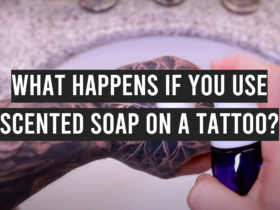
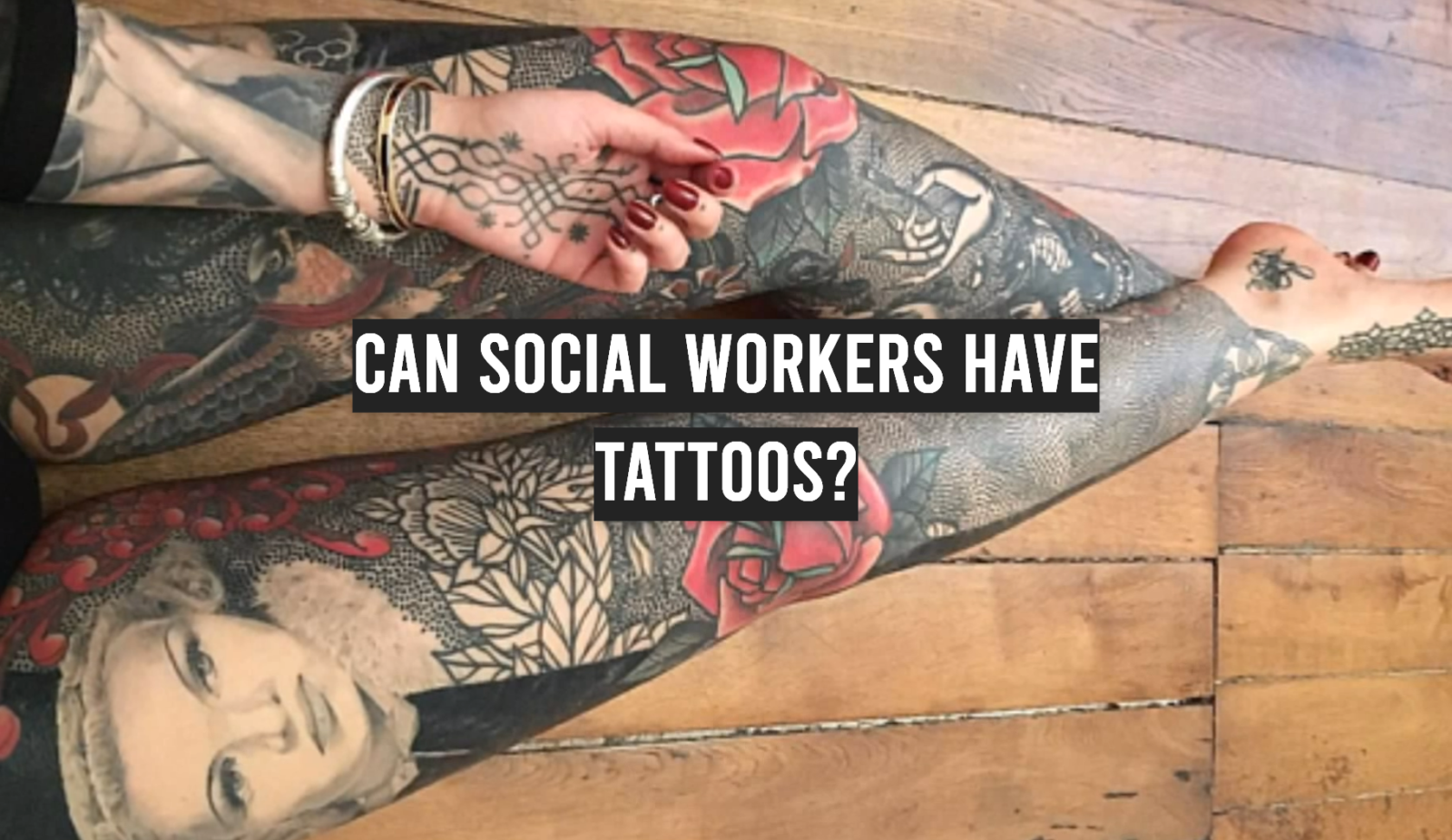
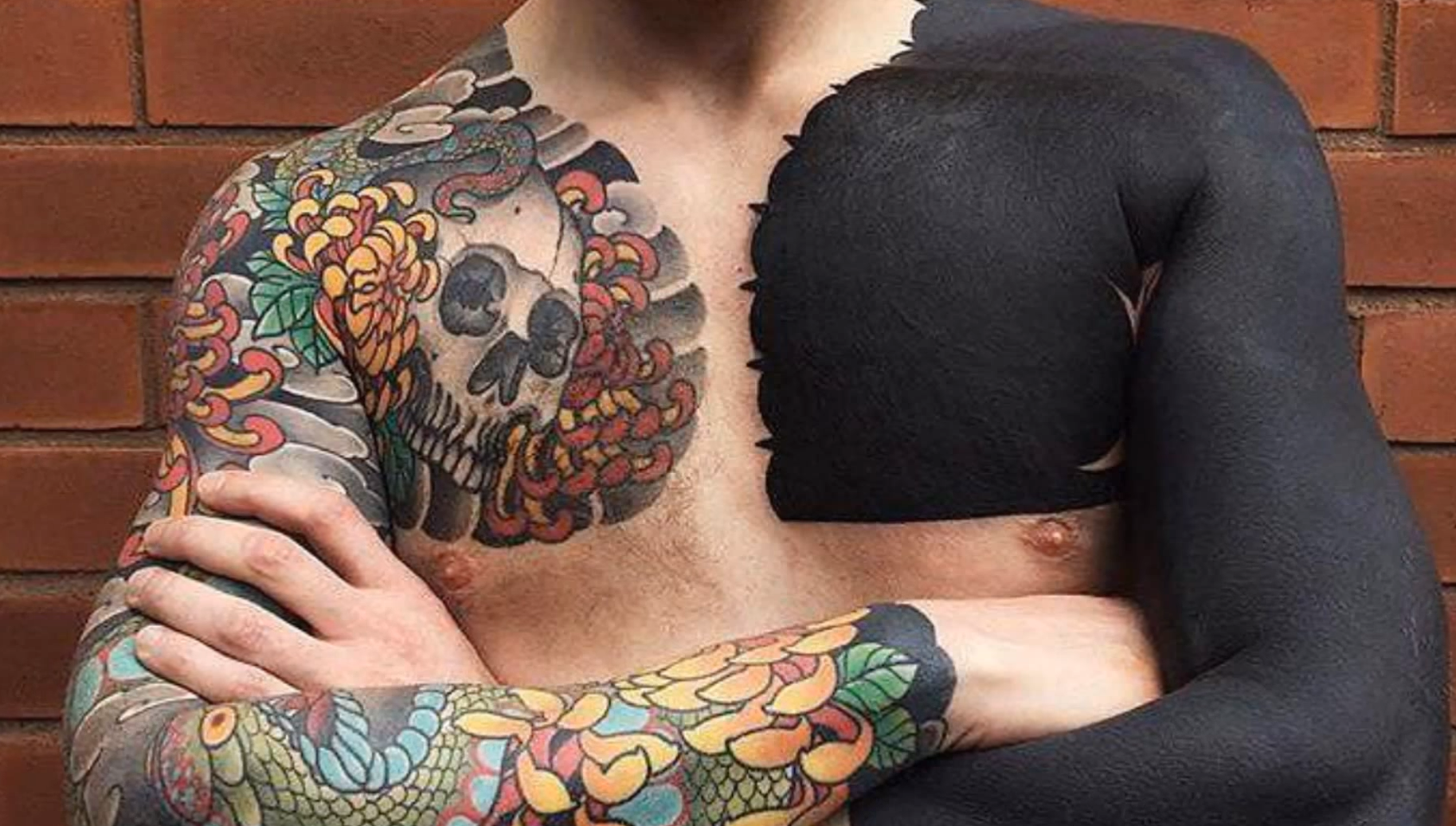


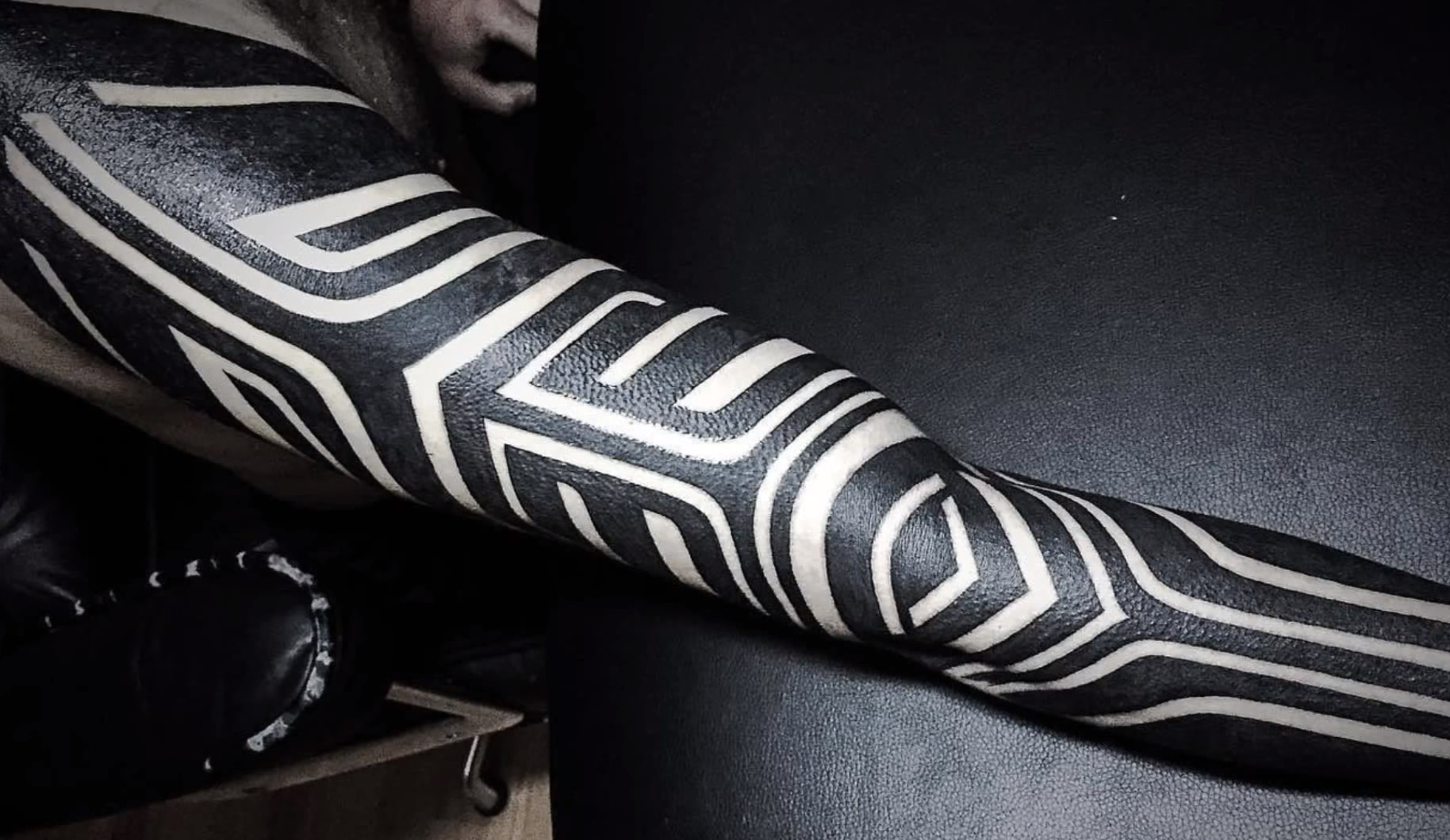

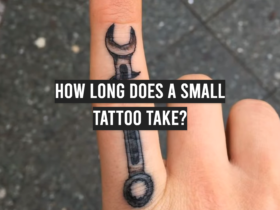


Leave a Review